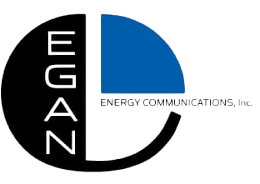
One of the cornerstones of effective communications, a former presidential adviser once said, is message discipline: “Right about the time the communications staff is about to throw up from repeating the same message,” he said, “the public begins to hear it.”
Who said it? Was it David Gergen? Karl Rove? My efforts to track down that quote have proven fruitless. But I remember reading it, possibly in The New York Times Magazine, because it was a “where were you when Kennedy was shot?” moment, something that sticks with you.
To take a current example, Dr. Anthony Fauci, director of the National Institute of Allergy and Infectious Diseases, is a master of message discipline. Think about it: Every time you see him being interviewed, he consistently says the best way to defeat the COVID-19 pandemic is to wash your hands, practice social distancing and wear a mask.
As I thought about the truism of message discipline, I was reminded of academic studies showing it took numerous repetitions — somewhere between 7 and 20 — before the public believed a new marketing message or brand promise. And the more time people hear a message, assuming it is delivered on, the more likely they will be to remember it.


For example, would you be surprised to learn that General Electric abandoned its longtime slogan, “We bring good things to life,” nearly two decades ago? That’s probably because we heard it thousands of times between 1979 and 2003. And, generally, GE delivered — whether it was light bulbs, washing machines, microwaves or refrigerators. They worked, and they were affordable.
All of this was sloshing around in my brain recently when a client asked me to prepare a list of no-cost and low-cost ways that customers could use to reduce their electric bills. We’re staying in our homes and apartments more because of COVID-19, the client said, so let’s be sure we’re not wasting electricity.

After a little internet research, I came up with the Top 10 Tips list, which included several long-established tips such as:
1. Sign up for your utility’s free Home Energy Reports to learn where your energy dollars are going.
2. Home appliances like PCs, big-screen TVs and gaming systems use electricity even when they’re turned off. Drive a stake through the heart of these “vampire loads” by plugging your PC, big-screen TV and gaming system into a power strip and flipping the power strip to “off” when you’re not using the appliances.
3. Open your window curtains to let in free solar energy during the warmer months.
4. Don’t heat (or cool) unused spaces. Close off air vents in rooms no one is using.
5. Set your hot water heater to 120 degrees.
6. Take shorter showers.
I’m sure you have prepared this list, or something like it, any number of times. Each time you start, you may ask yourself, “Really? Again?”
Communications tip of the month: Message discipline — the frequent repetition of a simple message — is one of the cornerstones of effective communications.
Yes! Because the last time you sent that message, many of your customers didn’t receive it.
Perhaps they were doom-scrolling about the COVID-19 pandemic and didn’t pay attention to your ad.
Maybe their spouse opened the mail that day and tossed your bill-stuffer in the trash.
Was the art that accompanied the copy boring?
How about your messaging — was it stale?
Are you using unfamiliar terms like kilowatt-hours of electricity, therms of natural gas, or hundreds of cubic feet (CCF) of water that your customers don’t understand? (Hint: Everyone gets dollars and cents!)
There’s any number of reasons, including the need for repetition, cited above, why you need to regularly communicate about using electricity, gas or water as efficiently as possible. If you scout around, you can always find a new hook:
- A drought heightens the attention people pay to their water use.
- A price increase for electricity, gas or water that is greater than the rate of inflation tends to get your customers’ attention.
- During the pandemic, many people are spending more time than usual in their homes, using their own electricity, gas, and water rather than their employers’.
- Using resources wisely lessens the collective strain we all place on the environment.
- Lowering electric use could postpone the need to build a new power plant, thus delaying a major capital expense that would increase electric prices.

Don’t despair! When given the opportunity to communicate about efficiency, let William Shakespeare be your messaging guru: “Once more unto the breach, my friends,” as he wrote in King Henry the Fifth.
And while I’m betting that Shakespeare, David Gergen or Karl Rove know little about electric, gas or water efficiency, the latter two, at least, know messaging.
So, when do you stop repeating your efficiency messaging? When you find yourself doubled over a toilet, giving up breakfast. When that happens, remember to pull your hair back.
Photo Credits: iStock unless otherwise noted.
“Say What?” Best Practices in Complex Issue Messaging
What’s the most cost-effective way to communicate with a readily changing customer base? Benton Rural Electric Association asked EEC to help determine how it could get more bang for its communications buck.
Take a look at the project case study here.


